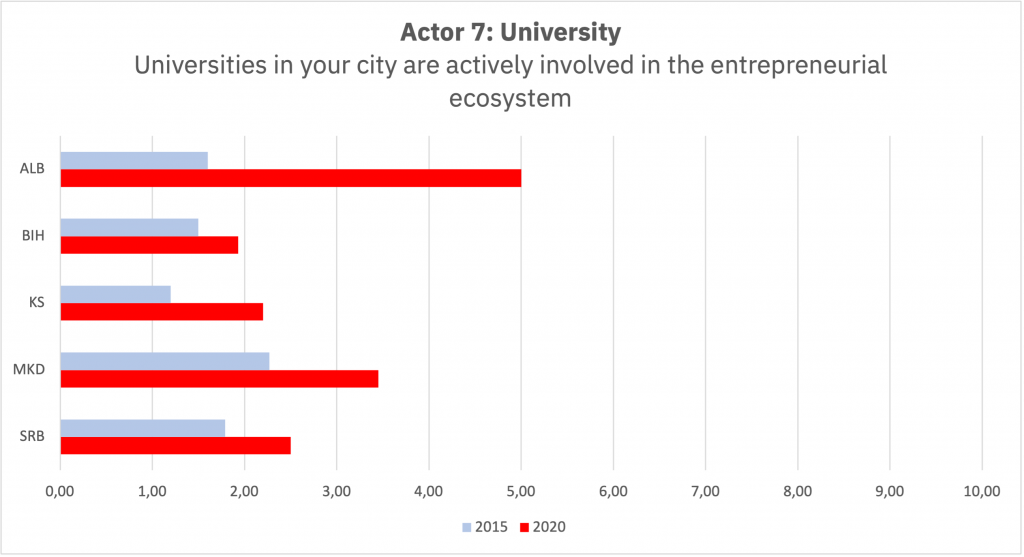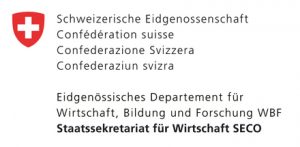For Brad Feld, “universities are creators and disseminators of knowledge, technology and science”. A well-functioning university “leads to a well-educated workforce, a stable local economy, and entrepreneurial opportunities for commercializing technology innovations”. Universities are natural “facilitators of entrepreneurship”. As such, universities have a key role to play in every entrepreneurial ecosystem. The Balkan region included. In the US, universities are more closely connected to the private sector, a collaboration on learning and research which is beneficial for students, private companies and academia. Universities in Europe and the Balkans need to open up more to the private sector and build similar multifaceted relationships with local companies and startups, to boost the transfer and use of new technologies and skills.
On the topic of universities, we asked our interviewees how accurate they found the following statement “Universities in your city are actively involved in the entrepreneurial ecosystem”.
Clearly, this statement hit a nerve with the interviewees who universally ranked the universities as one of the actors least active in the ecosystem. Looking back at universities’ level of activity in the ecosystems in 2015, the respondents gave an average score of 1.7 (on a scale from 0 to 10). Five years later, the average score had reached no further than 3.0. That counts for a 76% improvement, but the progress is not found across all countries. Here are some striking results:
- Albania is the outlier here with a growth of 212%, from 1.6 to 5.0. The result is likely to reflect a donor-funded incubation program rolled out by a consortium of several universities during the survey period.
- Kosovo also showed a significant jump in positive reaction to the statement (83%), albeit from a very low level in 2015 (1,2). The improvement is probably linked to the establishment of VentureUP incubator within the framework of the University of Pristina, the largest public university in Kosovo.
- For the other three countries, the positive change is more moderate with Bosnia & Herzegovina (+27%), North Macedonia (+52%) and Serbia (+39%). In North Macedonia, the Faculty of Computer Science and Engineering (FINKI) actively engages its students in entrepreneurship, but one bird does not make Spring.

Beyond the scoring, the respondents were generally very critical of the universities’ approach to entrepreneurship and entrepreneurs, or rather the almost complete lack of it. Numerous interviewees pointed to a pre-occupation for theory in university curricula and zero practical knowledge. One respondent stated that “universities are left behind and don’t have the mindset to guide students towards entrepreneurship or to teach them the know-how.” In summary, there was a clear message from the respondents that the universities, professors, and programs must change to build adequate entrepreneurship skills and practices among students.
The relationship between academia and the private sector has been a challenge in all Balkan countries since societal transition started more than 30 years ago. Private companies and the economy can only thrive if they have access to talent, but it must be the ‘right’ talent and skills. Universities are the leading creators of talent in every well-functioning economy.
However, to benefit the overall economy, universities must look beyond their apparent academic mission and ensure that the talents they create are ‘fit-for-purpose’, meaning that their skills are in demand by the private sector. This is clearly not yet happening in the region. Hence, the often successful drive by the private sector to manage its own capacity-building solutions in the non-formal education system, and now, as we have seen with Brainster in Skopje, also in the formal education system.




